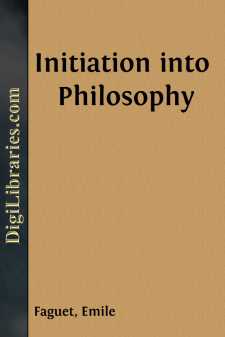Categories
- Antiques & Collectibles 13
- Architecture 36
- Art 48
- Bibles 22
- Biography & Autobiography 816
- Body, Mind & Spirit 145
- Business & Economics 28
- Children's Books 17
- Children's Fiction 14
- Computers 4
- Cooking 94
- Crafts & Hobbies 4
- Drama 346
- Education 58
- Family & Relationships 59
- Fiction 11834
- Foreign Language Study 3
- Games 19
- Gardening 17
- Health & Fitness 34
- History 1378
- House & Home 1
- Humor 147
- Juvenile Fiction 1873
- Juvenile Nonfiction 202
- Language Arts & Disciplines 89
- Law 16
- Literary Collections 686
- Literary Criticism 179
- Mathematics 13
- Medical 41
- Music 40
- Nature 179
- Non-Classifiable 1768
- Performing Arts 7
- Periodicals 1453
- Philosophy 66
- Photography 2
- Poetry 897
- Political Science 203
- Psychology 45
- Reference 154
- Religion 516
- Science 126
- Self-Help 85
- Social Science 82
- Sports & Recreation 34
- Study Aids 3
- Technology & Engineering 59
- Transportation 23
- Travel 463
- True Crime 29
Our website is made possible by displaying online advertisements to our visitors.
Please consider supporting us by disabling your ad blocker.
Initiation into Philosophy
by: Emile Faguet
Description:
Excerpt
CHAPTER I
BEFORE SOCRATES
Philosophical Interpreters of the Universe, of the Creation and Constitution of the World.
PHILOSOPHY.—The aim of philosophy is to seek the explanation of all things: the quest is for the first causes of everything, and also how all things are, and finally why, with what design, with a view to what, things are. That is why, taking "principle" in all the senses of the word, it has been called the science of first principles.
Philosophy has always existed. Religions—all religions—are philosophies. They are indeed the most complete. But, apart from religions, men have sought the causes and principles of everything and endeavoured to acquire general ideas. These researches apart from religious dogmas in pagan antiquity are the only ones with which we are here to be concerned.
THE IONIAN SCHOOL: THALES.—The Ionian School is the most ancient school of philosophy known. It dates back to the seventh century before Christ. Thales of Miletus, a natural philosopher and astronomer, as we should describe him, believed matter—namely, that of which all things and all beings are made—to be in perpetual transformation, and that these transformations are produced by powerful beings attached to every portion of matter. These powerful beings were gods. Everything, therefore, was full of gods. His philosophy was a mythology. He also thought that the essential element of matter was water, and that it was water, under the influence of the gods, which transformed itself into earth, air, and fire, whilst from water, earth, air, and fire came everything that is in nature.
ANAXIMANDER; HERACLITUS.—Anaximander of Miletus, an astronomer also, and a geographer, believed that the principle of all things is indeterminate—a kind of chaos wherein nothing has form or shape; that from chaos come things and beings, and that they return thither in order to emerge again. One of his particular theories was that fish were the most ancient of animals, and that all animals had issued from them through successive transformations. This theory was revived for a while about fifty years ago.
Heraclitus of Ephesus (very obscure, and with this epithet attached permanently to his name) saw all things as a perpetual growth—in an indefinite state of becoming. Nothing is; all things grow and are destined to eternal growth. Behind them, nevertheless, there is an eternal master who does not change. It is our duty to resemble him as much as we can; that is to say, as much as an ape can resemble a man. Calmness is imperative: to be as motionless as transient beings can. The popular legend runs that Heraclitus "always wept"; what is known of him only tends to prove that he was grave, and did not favour emotionalism.
ANAXAGORAS; EMPEDOCLES.—Anaxagoras of Clazomenae, above all else a natural philosopher, settled at Athens about 470 B.C.; was the master and friend of Pericles; was on the point of being put to death, as Socrates was later on, for the crime of indifference towards the religion of the Athenians, and had to take refuge at Lampsacus, where he died....



